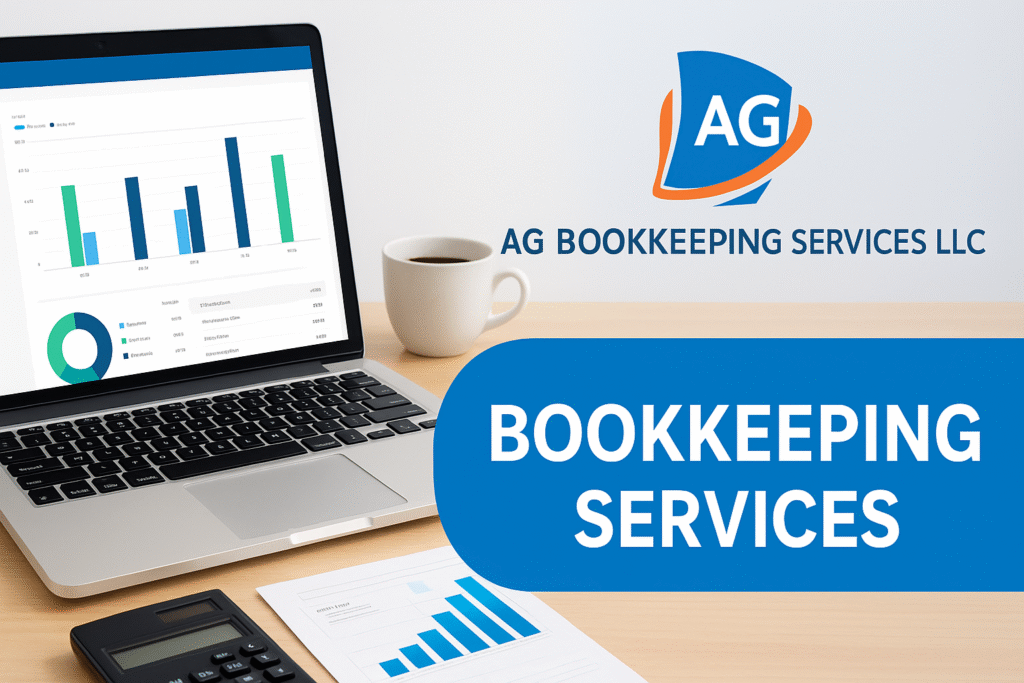If you’re wondering how to start a bookkeeping business from home in 2025, you’re in the right place. Starting a bookkeeping business from home is now easier and more profitable. Remote work is becoming common. There is also a growing need for online financial services.
This guide is for everyone. It can help stay-at-home parents, individuals changing careers, and those skilled with numbers who want to be their own boss. Use it to start strong. We’ll also discuss how to expand your operation into a comprehensive virtual bookkeeping business when you’re ready.
Step 1: Understand the Role of a Home-Based Bookkeeper
Before you dive in, let’s clarify what you’ll be doing. Bookkeepers are the unsung heroes of small business accounting. They track daily financial transactions, categorize expenses, reconcile accounts, and prepare financial reports that help business owners make decisions.
When learning how to start a bookkeeping business from home, remember this: you don’t need a CPA license. However, you must be accurate, detail-oriented, and good with technology. And yes, you can learn all of this without setting foot in an office.
Tools like Bookkeeper Launch provide beginner-friendly training designed specifically for at-home entrepreneurs.
Step 2: Learn the Necessary Skills and Tools
If you’re not already experienced, now’s the time to level up. Master basic accounting principles and get comfortable with bookkeeping software like QuickBooks, Xero, or FreshBooks.
For credibility, you can also get certified through the American Institute of Professional Bookkeepers (AIPB) or the National Association of Certified Public Bookkeepers (NACPB). These programs offer flexible, online learning options tailored to people building businesses from home.
You should also get to know cloud tools like Google Workspace, Dropbox, and Zoom. These are essential for any virtual bookkeeping business
Step 3: Set Up Your Home Office
Learning how to start a bookkeeping business from home doesn’t require a huge space, but your workspace needs to be functional. Find a quiet spot in your home. Make sure it has good lighting and a comfy chair. If you can, use a dual-monitor setup

Security is a must, especially when handling client financial data. Install antivirus protection, use a password manager like LastPass, and enable two-factor authentication on all accounts. Don’t forget the software you need. You will need an email, like Gmail for business. You also need calendar tools, bookkeeping software, and invoicing platforms like Wave. Lastly, make sure you have a secure file-sharing system.
Step 4: Choose Your Business Model and Niche
The biggest mistake beginners make when starting a bookkeeping business from home is trying to serve “everyone.” Instead, choose a niche. Real estate professionals, creatives, eCommerce businesses, or coaches all have unique financial needs. The more focused you are, the easier it will be to market yourself
You should decide early if you will stay solo or grow into a virtual bookkeeping business with a remote team. Planning for growth from the start makes scaling much smoother.
Step 5: Register Your Business and Stay Compliant
Make your business official. Pick a name, register it with your state, and decide whether to operate as a sole proprietor or LLC. You’ll also need to:
- Apply for an EIN through the IRS (free).
- Open a business bank account
- Check your state for any required business licenses
Protect yourself and your clients with a basic client service agreement and, optionally, professional liability insurance
Step 6: Create Your Online Presence
Even if you’re working from home, you need a digital storefront. A professional website builds trust and makes it easy for clients to find and hire you. Include:
- An About page that tells your story.
- A Services page with clear pricing or packages (see how AG Bookkeeping Services does it).
- A Contact form or booking tool.
For SEO, make sure your site includes key phrases like “how to start a bookkeeping business from home” to attract organic traffic. Also, set up a Google Business Profile to help local prospects discover you.
And remember to link to helpful resources like AG’s blog. It offers tips and tools for new bookkeeping entrepreneurs
Step 7: Find Your First Clients
This is where many give up—but don’t. Your first few clients will likely come through networking, referrals, or online platforms. Try these:
- Ask friends or small business owners in your circle if they need help
- Offer free audits or discounted first-month services to earn trust
- Offer free audits or discounted first-month services to earn trust
- Create a simple profile on freelance platforms like Upwork, Freelancer, or Thumbtack.
The goal is to build testimonials and momentum. After a few happy clients, referrals become your best marketing tool.
Step 8: Package and Price Your Services
Pricing can be tricky when figuring out how to start a bookkeeping business from home, but don’t undercharge. Most bookkeepers make between $30 and $60 or more per hour. They may also offer monthly packages that cost between $250 and $1,000 or more. The price depends on the amount of work and how complex it is.
Consider offering tiered service levels (basic, premium, VIP) to serve different budgets and business sizes. Be transparent and confident in your value—it shows professionalism and helps you attract serious clients

Step 9: Automate and Plan for Growth
One major perk of working from home is flexibility. But to avoid burnout, start automating. Use tools like Dubsado (client onboarding), Calendly (appointments), and QuickBooks Online (recurring invoicing).
Eventually, you can expand your solo gig into a full virtual bookkeeping business. Hire subcontractors, outsource admin work, and focus on growing your brand and client base. Many bookkeepers even branch into payroll, tax consulting, or financial coaching
Final Thoughts
If you’re serious about how to start a bookkeeping business from home in 2025, the opportunity is wide open. Thanks to remote technology and affordable tools, it’s easier than ever to start a business. There is also a rising demand for freelance finance experts. You can build a successful business from your kitchen table or home office.
It all starts with one step: believing you can. Set a launch date, commit to learning the skills, and start reaching out to prospects. The freedom and income potential that comes with being your boss? Worth every effort.


